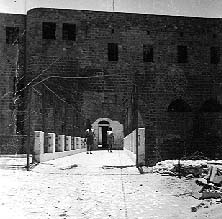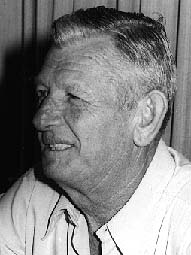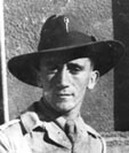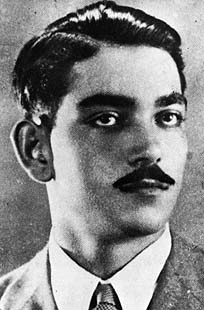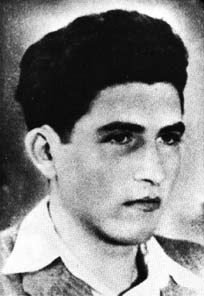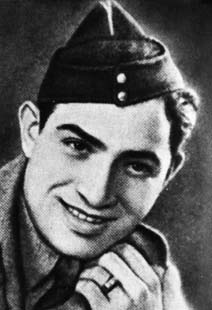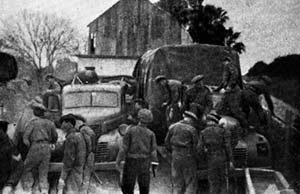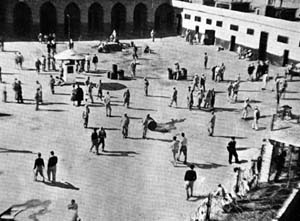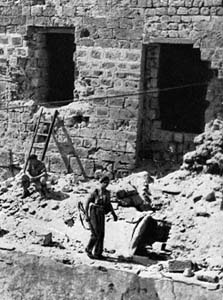The Acre Prison Break

Acre was conquered by the Ottomans at the beginning of the 16th century. The governor of Galilee, Ahmed al-Jazzar, developed the town, building a fortress and markets and turning it into the 'main gateway' to Eretz Israel (Palestine).
Under the British Mandate, the fortress served as a jail, where underground fighters were imprisoned and where eight Irgun fighters went to the gallows. Acre prison was the most highly-guarded fortress in the country; surrounded by walls and encircled to the east and north by a deep moat; the sea to the west. It was located in the heart of an Arab town with no Jewish inhabitants.
Under the British Mandate, the fortress served as a jail, where underground fighters were imprisoned and where eight Irgun fighters went to the gallows. Acre prison was the most highly-guarded fortress in the country; surrounded by walls and encircled to the east and north by a deep moat; the sea to the west. It was located in the heart of an Arab town with no Jewish inhabitants.
The New York Herald Tribune wrote that the underground had carried out 'an ambitious mission, their most challenging so far, in perfect fashion'.
In the House of Commons, Oliver Stanley asked what action His Majesty's Government was planning to take 'in light of the events at Acre prison which had reduced British prestige to a nadir'.
Shortly after the Acre jail break, Andrei Gromyko, USSR representative to the UN, caused a sensation when he informed the stunned delegates that his country took a favorable view of the establishment of a Jewish state in Palestine.
Three weeks after the jail break, the five Irgun fighters who had been captured after the operation were put on trial. Three of the defendants - Avshalom Haviv, Yaakov Weiss and Meir Nakar - were carrying weapons when they were caught close to the jail wall. They challenged the authority of the court and, after making political statements, were all sentenced to death.
The other two, Michaeli and Ostrowicz, were captured, unarmed, at some distance from the jail. Since there was a chance of saving them from the death penalty, the Irgun General Headquarters decided to conduct a proper defence procedure. The counsel for the defence succeeded in producing documents proving that the two were minors, and the court sentenced them to life imprisonment.
In the House of Commons, Oliver Stanley asked what action His Majesty's Government was planning to take 'in light of the events at Acre prison which had reduced British prestige to a nadir'.
Shortly after the Acre jail break, Andrei Gromyko, USSR representative to the UN, caused a sensation when he informed the stunned delegates that his country took a favorable view of the establishment of a Jewish state in Palestine.
Three weeks after the jail break, the five Irgun fighters who had been captured after the operation were put on trial. Three of the defendants - Avshalom Haviv, Yaakov Weiss and Meir Nakar - were carrying weapons when they were caught close to the jail wall. They challenged the authority of the court and, after making political statements, were all sentenced to death.
The other two, Michaeli and Ostrowicz, were captured, unarmed, at some distance from the jail. Since there was a chance of saving them from the death penalty, the Irgun General Headquarters decided to conduct a proper defence procedure. The counsel for the defence succeeded in producing documents proving that the two were minors, and the court sentenced them to life imprisonment.
